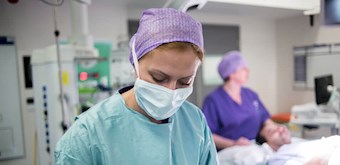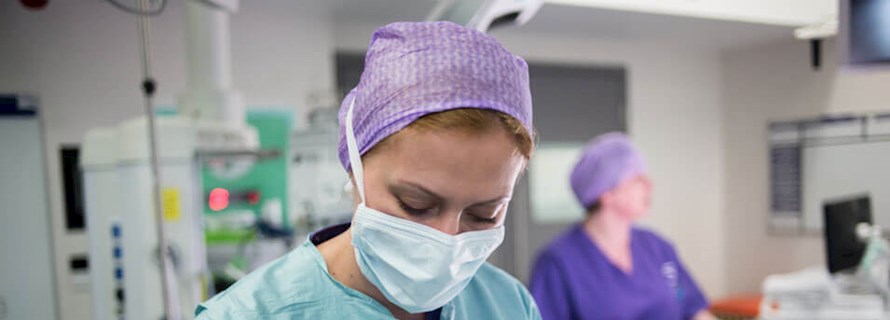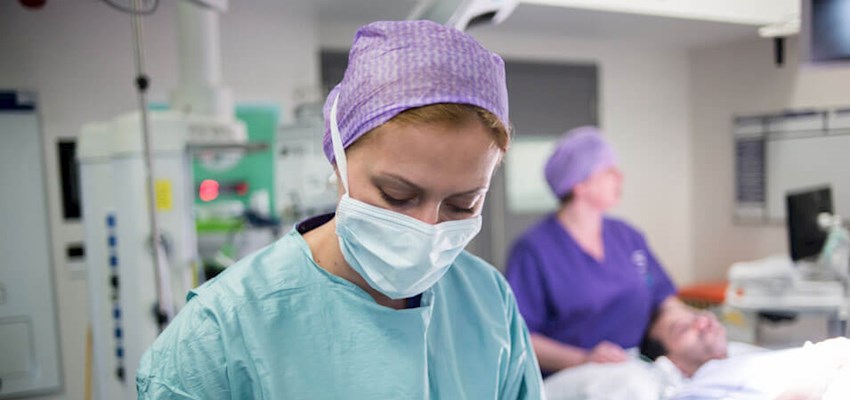Surgery for inflammatory bowel disease
Inflammatory bowel disease can be treated with surgery, including replacing your large intestine and rectum with a pouch
About IBD
Inflammatory bowel disease (IBD) is a common condition that affects the digestive system.
Symptoms include:
Symptoms include:
- stomach cramps
- bloating
- diarrhoea
- constipation.
Need to know
-
What happens during surgery for IBD? icon plus
Under a general anaesthetic your consultant will remove the whole colon (large intestine) and your rectum and create an internal pouch, or reservoir, using your small intestine.
The pouch is connected to the anus and is used to store stools. The pouch is often referred to as a ‘J-pouch’ because of its shape. Surgery can be carried out either through open surgery or laparoscopic (keyhole) surgery.
The type of surgery you receive will depend on your circumstances and the surgeon you have. Your consultant will discuss the procedure with you prior to your operation. -
How to prepare for surgery icon plus
The day before your surgery you will likely be asked to take a bowel preparation which will give you diarrhoea to clear the bowel of any faeces to make the operation easier.
You may also need to follow a specific diet and avoid some medications. As you'll be asleep during the procedure you should avoid eating or drinking in the hours before surgery. -
After your surgery icon plus
You may need to stay in hospital for around a week. The length of your stay will also depend on whether you had open or laparoscopic surgery.
You may receive nutrition through an intravenous drip until your bowel has healed a little and you are able to drink more normally. You will probably be encouraged to eat and drink as soon as you feel able and will be encouraged to move around.
It is likely that your bowel habits will be very different from what they previously were. An experienced nurse will be able to discuss this with you.
Our gastric surgeons
We're proud to work with leading experts in the stomach, bowel and colon, whose skills are matched by their integrity and compassion.




Our locations
From complex gastric surgery to diagnostic tests and procedures, we provide exceptional gastrointestinal care across our network of hospitals, outpatient centres and specialist clinics.
Contact us about our GI services
We're happy to help you make an appointment with one of our experienced GI consultants.
Call us on:
020 7079 4344
This content is intended for general information only and does not replace the need for personal advice from a qualified health professional.